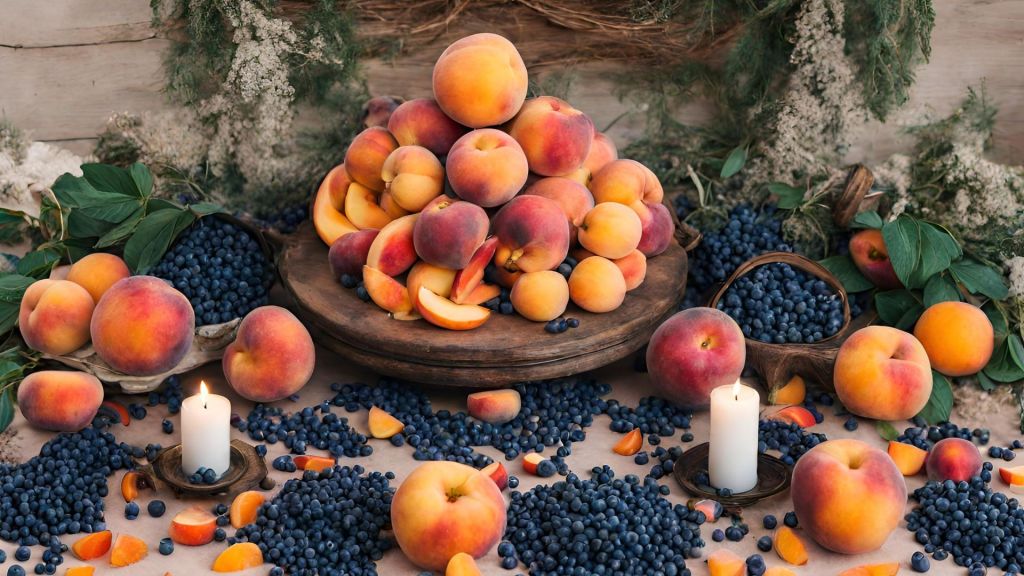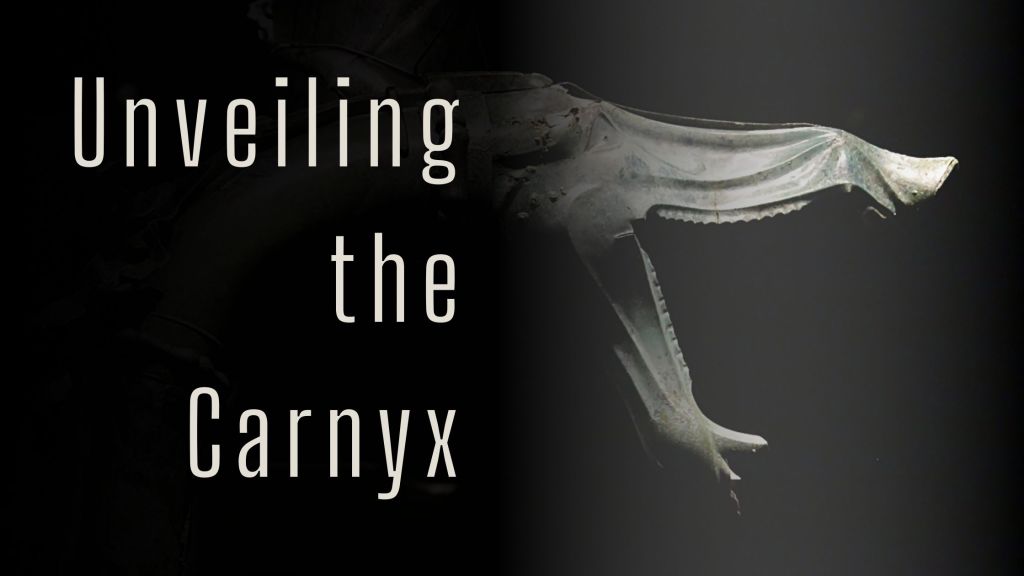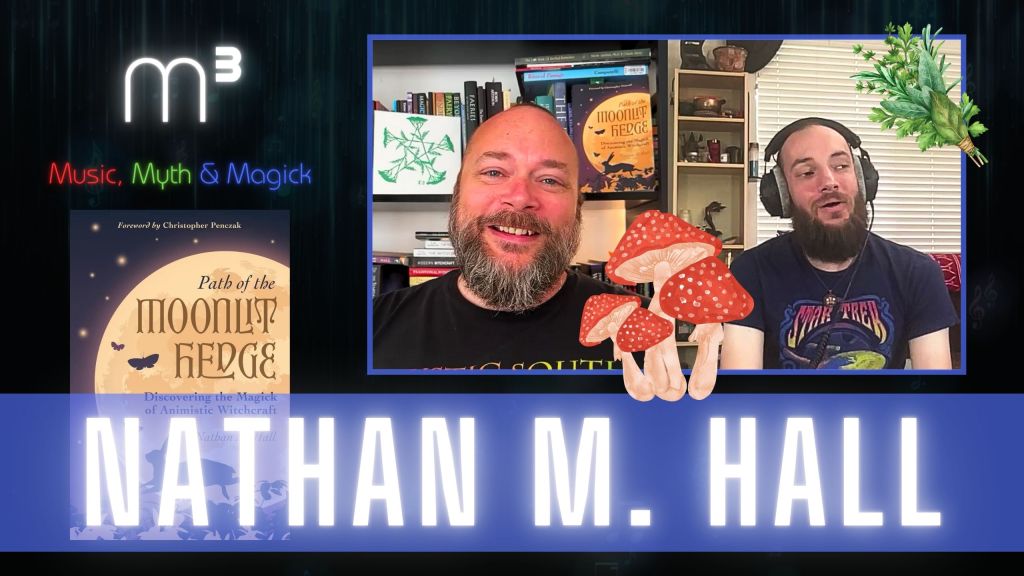Regardless of how you celebrate it, Spring is a wonderful time. Flowers are blooming and the animals are having extra fun. In many climates, the weather has just started warming up enough to be pleasant.
If I close my eyes and think of Spring Equinox, I start to picture eggs. And maybe some rabbits. Are these Pagan symbols? Are they Christian? This is definitely a holiday that someone might have reconstructed… but who?
Let’s find out. We’re going to dive into this strange time of year and go through all the usual facts and history, but there’s an extra treat in store for you: a contribution by Selene. Yes, my wonderful wife will finally share some of her writing with you, dear readers. Are you excited? I know I am.
Names and Dates
Spring Equinox occurs each year on March 19, 20, or 21 in the Northern Hemisphere when the amount of day and night are equal. Just like its cousin across the wheel, Autumn Equinox, this variable date is due to the wobble in the earth’s axis.
To quote scientific sources:
-National Weather Service
There are only two times of the year when the Earth's axis is tilted neither toward nor away from the sun, resulting in a "nearly" equal amount of daylight and darkness at all latitudes. These events are referred to as Equinoxes. The word equinox is derived from two Latin words - aequus (equal) and nox (night). At the equator, the sun is directly overhead at noon on these two equinoxes. The "nearly" equal hours of day and night are due to refraction of sunlight or a bending of the light's rays that causes the sun to appear above the horizon when the actual position of the sun is below the horizon. Additionally, the days become a little longer at the higher latitudes (those at a distance from the equator) because it takes the sun longer to rise and set. Therefore, on the equinox and for several days before and after the equinox, the length of day will range from about 12 hours and six and one-half minutes at the equator, to 12 hours and 8 minutes at 30 degrees latitude, to 12 hours and 16 minutes at 60 degrees latitude.
In some Wiccan traditions, this time is also referred to as Ostara — pronounced “oh – STAR – uh.” And again, just like the word “Mabon,” some people take issue with it because of its association with Aidan Kelly.
In 2024, the Spring Equinox will occur at precisely 11:06 PM Eastern Time on Tue, Mar 19. If you’re confused, just refer to the handy wheel of the year graphic.

There are lots of other words thrown around this time of year, including Easter and Pascha… we’ll come back to those in a minute.
Associations
Before we get too much further into this epic egg hunt, let’s take a look at some things that are commonly associated with Spring Equinox and this time of year within Wiccan traditions.
- Goddess: Eostre
- God: Green Man
- Colors: pastels, pinks, yellows, greens
- Flowers: tulips, daffodils, any blooming flowers,
- Herbs: cedar, lemon, rosemary, lavender
- Crystals: sunstone and moonstone
- Foods: dishes based on eggs
- Symbols: eggs, rabbits, hares, songbirds, seeds
- Instruments: drums, flutes and strings can also be particularly “springy”
Around the World
Since the equinox is a solar event, it is observed all around the world. Some examples are below.
Chichen Itza

In Mexico, you might find a particularly breathtaking sight at Chichen Itza pyramid during the equinox. As the sun sets, shadows form the shape of Kukulcan (the Feathered Serpent) and gradually descend the staircase.
Holi

The Hindu holiday of Holi, also called The Festival of Colours, Love, and Spring, celebrates the end of winter and the eternal love between Radha and Krishna. It occurs on the last full moon day of the Hindu luni-solar calendar month (typically in March, but sometimes in late February) and features brightly colored powders.
Purim

While not necessarily related directly to the Equinox, we can perhaps say that the Jewish celebration of Purim is at least “equinox adjacent.” The holiday, also called “the feast of lots” occurs annually on the 14th day of the Hebrew month Adar. On some years this date actually will overlaps with Easter. It celebrates Haman rescuing the Jewish people from genocide. An iconic symbol of Purim is the hamantaschen, which are triangular shaped cookies said to represent Haman’s three-cornered hat.
Egg Hunts

Forever branded in my memory, this time of year is frequently celebrated by egg hunts, chocolate bunnies, and baskets filled with candy.
Easter
Eggs, eggs, and more eggs! Oh my, it must be Easter. We can go to the mall, sit on a bunny’s lap, and gossip about Santa Claus.
As a kid growing up in a Christian household, I always wondered why in the hell eggs and rabbits were somehow associated with the death and resurrection of Jesus Christ. But I never dared ask… for those eggs were filled with candy and that was most important thing to me (obviously).
Today, I still have those many of those same questions.
While Spring Equinox is a solar event that is observed all over the world, Easter is a Christian holiday that commemorates the story of Christ’s resurrection on the third day after his death. It’s celebrated on the first Sunday after the Paschal Full Moon.
Pascha, by the way, is basically the Greek, Aramaic, and Latin word for Easter. The Paschal Full Moon, then, is the first full moon that immediately precedes Easter… but this date is ultimately determined by Spring Equinox. Basically, the Equinox happens, then a full moon, and then Easter. Yes, this Christian holiday is based on moon cycles. Sounds like it could have a pretty heavy Pagan influence to me… but does it really?
There’s a number of claims that usually float around, including:
- Easter comes from an Ancient Babylonian feast for the goddess Ishtar
- Easter comes from a Germanic or Anglo-Saxon holiday celebrating Eostre
You can have some fun researching those on your own. I mean, I personally get a kick out of unveiling Pagan origins of Christian holidays… but in this case, they’re pretty bunk. Easter is just a Christian celebration. Yes, it does use eggs and hares as symbols, and we’ll talk more about those in a minute, but there’s just not really any evidence to support them being stolen from pagans.
Eostre
Eostre is a goddess of springtime, fertility, dawn, and new beginnings. I won’t place too much emphasis on proper pronunciation here because there is zero agreement, however most sources give something along the lines of “YO-stir” or “ee-OH-stir.”
You’re going to find half a dozen spelling variants here, including “Eastre,” “Eoster,” “Ostara,” and “Ostera.” For sake of simplicity, I’m just going to stick with “Eostre.”
It is said the Eostre’s symbols are the hare and eggs. There is, in fact, a lovely story where she finds a bird with a broken wing and rescues it by transforming it into a hare. The hare retains its ability to lay eggs.
So, boom, the Pagan origins of Easter are unveiled?

Ostara by Johannes Gehrts, 1884, Public Domain, Courtesy of Wikipedia
Not really, no. There’s very few sources that actually attest to Eostre’s existence or how she was celebrated. Most of the information has simply been inferred or hypothesized — and the whole story about her and the hare is a fairly modern invention. I’m not at all saying Eostre didn’t exist, but I am saying we don’t really know much about her or how she was celebrated.
Regardless, she is still a goddess! And whether or not her myth is 100 years old or 1000, it’s still a beautiful tale that fits in nicely with our springtime atmosphere. After all, myths are just stories… not historical facts. We’re still completely capable of creating new myths and legends in modern day — they don’t all have to have ancient origins to have valid meaning.
Eggs and Rabbits
At long last, we’ve come to the topic of eggs, rabbits, and even egg-laying rabbits.
To be specific, though, the folklore symbol is usually a hare and not a rabbit — but hares, rabbits, and bunnies of all sorts have one big thing in common: they breed like… well, like rabbits.
Rabbits have a gestation period of about one month. They can have between 1 and 14 babies per litter and can be impregnated again just minutes after giving birth. I won’t bore you with math, but you should see why it’s easy for just a handful of rabbits to turn into thousands over a few years. As such prolific breeders, and also due to their springtime mating season, it just makes sense for them to be a symbol for Spring and fertility.

Beautifully painted eggs
Eggs are another potent symbol of fertility, renewal, and new beginnings — they’ve been used as such all over the world and plenty of different cultures have their own customs for decorating them. A hollow egg was reportedly used by Christian groups in the 1600s — the empty shell representing the empty tomb of Jesus Christ. You’ll find many claims that this is evidence of Pagan influences on Easter, but… since the egg is such a widespread symbol, I don’t think it would really be fair to say that Christianity ripped it off. To put it simply, people just decorated and hid eggs because it was fun.
Add to this that Christianity had it’s own legitimate associations for eggs in the first place due to Lent, the 40 day period that commemorates Jesus’s 40 day fast in the desert. Historically, Christians gave up (or were forbidden from eating) several different foods during this time, including meat, dairy, and eggs. Easter marked the end of the fast, so it would only be natural to dig into a delicious pile of eggs after all was said and done. So again, not ripped off from some form of paganism.
Now, as for egg-laying rabbits… I don’t think it’s so much that the rabbit laid the eggs, just that the hare and the egg were frequently depicted together in iconography or used to convey the same ideas — after a thousand years or so of doing this, suddenly the bunny is bringing you a basket of eggs.
One final note: It’s possible to balance an egg on its end during either of the Equinoxes. I talked about that in the Autumn Equinox article and even showed a picture of my own success before debunking the myth.
Passing the Egg
If you’re looking for some awesome, egg-based magick, look no further! The following contribution comes directly from Selene — from her writing titled “Passing the Egg: A Hispanic Form of Healing.”
Growing up in a conservative catholic home, witchcraft was not something my family would ever talk about. “Brujeria” and divination were products of the Devil, they said. It was looked down upon and whenever us kids would enquire about something magical, we were quickly steered away to something else.
I never really gave it too much thought until I became a witch myself.
After I found my path and was brought into the Gardnerian tradition, I started to look back at my childhood. One memory stuck out the most. It was my grandma praying to Earth and passing an egg over people to absorb any bad energy they might have, as well as to cleanse and purify their body, spirit and even their aura. It could also be used to get rid of the evil eye, or “mal de ojo” as we call it. It is believed that you get “evil eyed” when someone strongly looks at you with envy, jealousy or malice, sometimes unintentionally! The evil eye would bring the receiver bad luck, ill health or misfortune. My grandma would perform this ritual to adults and children alike, and I remember the feeling of solemnity whenever she would perform it. Little did she know she was practicing Magick!
It is believed that this tradition might have originated in Mexico, but similar concepts are also found in Italy and the Philippines. The egg has long been considered a symbol of life and can be related with the absorption of energy. In short, you are transferring your bad energy to the egg.
Because this is a traditional art that has been passed down within the family, woman to woman and generation to generation, my grandmother taught my mom, and then my mother taught me. I would now like to share this ritual with all of you.
You will need a raw egg, a glass filled with water, and a pair of scissors. A waning moon is preferred, but it’s totally acceptable to do it whenever you feel like you need it. Start by praying to any high spirit or deity you believe in. Ask them for their help and their blessing. Beginning at the top of your head, pass the egg around your body in small circular motions. Then you will do your neck, shoulders, arms, torso, legs and feet. You’re not actually touching the skin with these motions, but are staying very close in proximity. As you’re passing the egg, it is fundamental that you visualize all the bad energy and/or ailments going from your body to the egg. Once you are done, crack the egg inside the glass filled with water and observe.
Most of the time when this ritual is done, the egg yolk will be cooked, like a hard boiled egg. It is believed that all the negativity that was just transferred to the egg cooked it. Some other interpretations are: If the yolk is runny and sinks to the bottom of the glass, then you’re free of envy and bad energy. If the egg whites resemble spiderwebs, it may represent obstacles in your path. Either way, you’re going to grab the scissors and cut the yolk in half in order to “cut the evil eye” and immediately flush it down the toilet. Throw some salt in the toilet and flush again, as this will neutralize the bad energies. You also need to throw away the shell from the egg you just used.
Congratulations! You just completed your first egg energy cleanse. It is a really simple ritual but it always worked well for me and my family. And now after all this talk of eggs, I will go and make myself an omelette!
-Selene
Hopefully she shares more cool stuff like this with us in the future. And hopefully I get some of that omelette.
What are the God and Goddess Doing?
All eggs and rabbits, aside, what are the god and goddess doing symbolically around this time? If you refer back to our handy locater chart, you’ll see that we’re right between Imbolc and Beltane. The sun has been growing in power, but both the god and goddess are still very youthful.
Right around the corner at Beltane, we’re about to celebrate their “sacred union.” But if you want to really get a feel for their metaphoric relationship at Spring Equinox, just look to what nature is doing around this time. Flowers are blooming. Animals are mating. The whole earth is just screaming fertility.
Celebrate Locally
With sabbats, we often talk a lot about what the earth is doing. Depending on your location, especially if it’s in a city, it can sometimes be harder to connect to this energy. Let me just remind you that it doesn’t matter where you live — there is something that is blooming or in season for you now, locally. Go grab some of whatever that is and throw it on your altar!
In Florida, April starts a harvest of blueberries and peaches!

Maybe not quite this much…
The above picture goes a little overboard, but throw a few blueberries or peaches on your altar to help embody the energy of the season. And if you don’t have room for a seasonal altar, at least eat some of the fruit!
Last week, for instance, we had blueberry pie. If you needed an excuse to eat pie, then here you go. Be seasonal.
Music for Ostara
And to help you feel even more seasonal, how about some Ostara music? What type of music reminds you of Spring? What puts you in a flowery, blossomy mindset?
Nothing says “____ like bunnies” better than Time of the Season.
I actually thought the lyric to this next one was “Spring is in the air.” But maybe that was from an air freshener commercial or something that I saw when I was a kid.
Who can resist a little Simon & Garfunkel?
There’s tons of versions of this next song, but Muse’s cover makes me feel the best.
I also recorded a version of this next song. You can’t get much “springier” than talking about the Queen of Spring.
Conclusions
There are plenty of ways to observe the Spring Equinox or just springtime in general. You might hunt for eggs, leave an offering to Eostre, eat freshly harvested foods, or any number of other things. Maybe you’ll just recognize the balance present within yourself, within nature, and between the light and the dark. What’s your favorite way to celebrate? Let me know in the comments!




Leave a comment